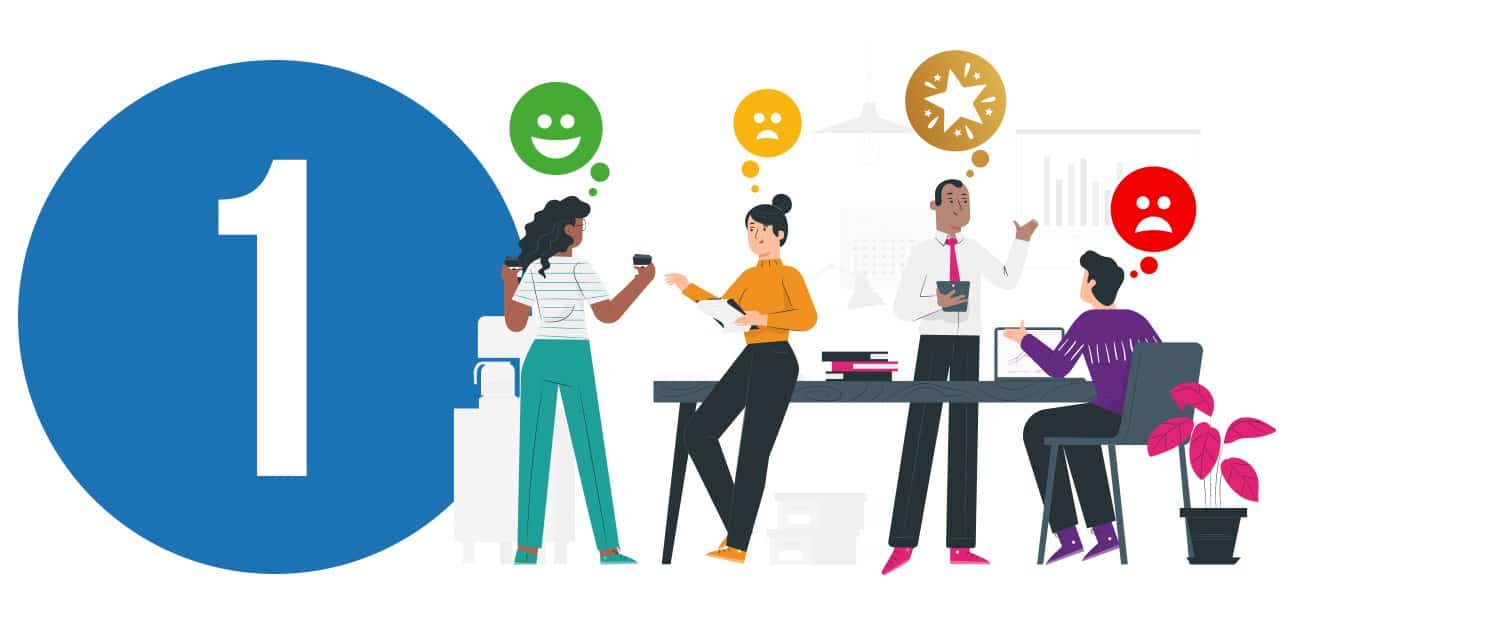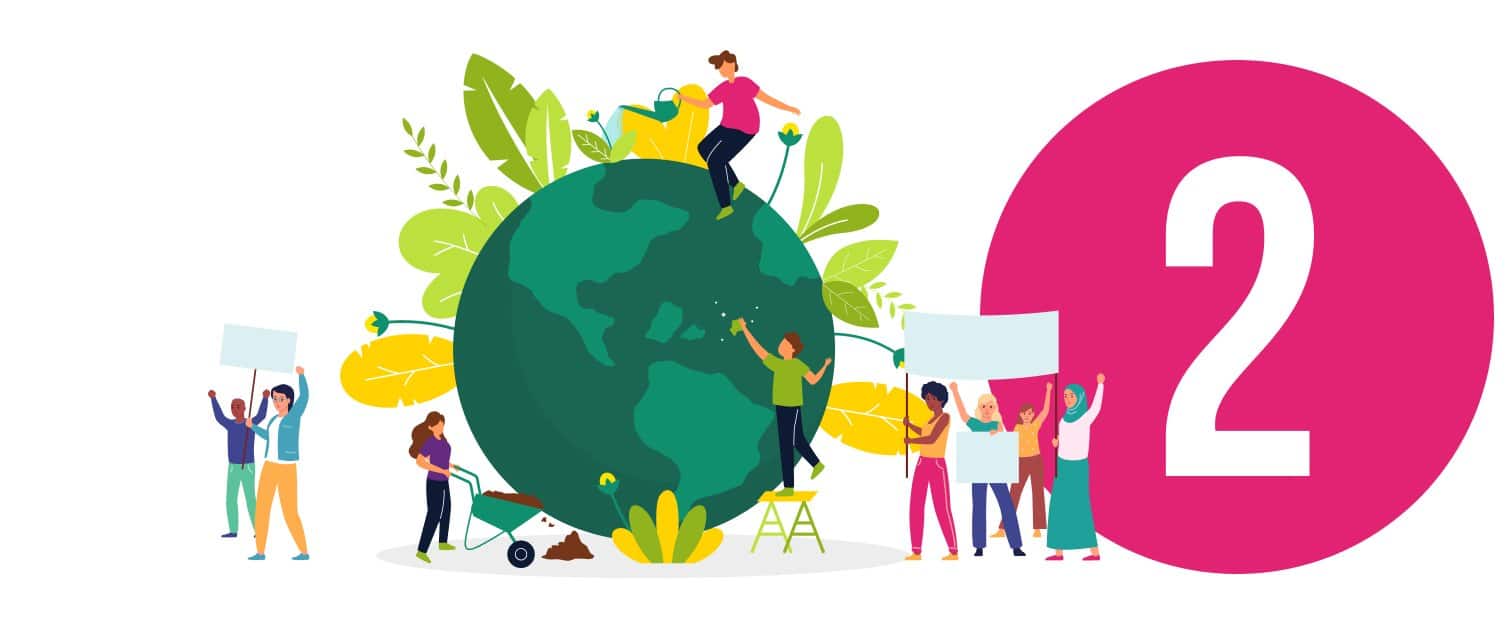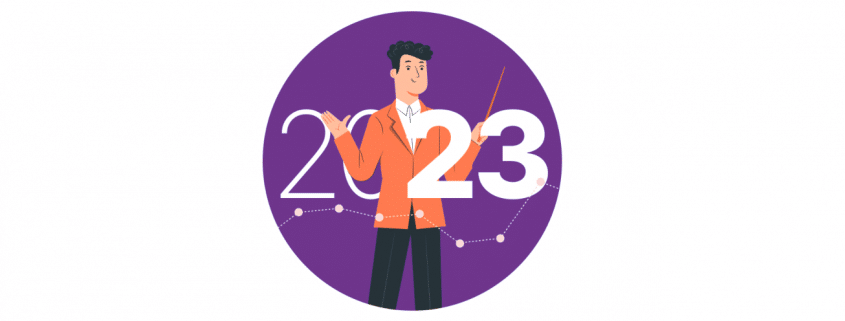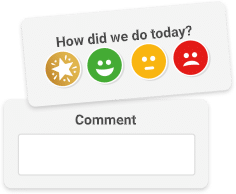The annual Customer Thermometer meta analysis of trending topics is back. Here, we draw on an extensive assessment of 2023 analyst predictions and expert views to pick out the mega trends that will influence customer experience in the year ahead.
The 4 areas we’ve identified for 2023 are:
- Economic woes simultaneously scrutinize ROI and squeeze budgets
- Sustainability takes center stage in decision making
- Customer strategy faces a reckoning as importance of CX peaks while customer satisfaction levels plummet
- The future of CX resides in the metaverse
Economic woes scrutinize ROI and squeeze budgets

The highest inflation in decades and a generally weak picture for economic growth have dented consumer confidence, making it harder for businesses to retain existing customers. At the same time, increased scrutiny on costs makes it imperative to demonstrate ROI on CX programs, and to make existing budgets stretch further by refining best practice.
- Inflation will eat into already stretched tech budgets, especially in Europe because of the weakness of the Euro and other local currencies against the US dollar.
- Analyst house Forrester predicts that 80% of companies will pivot innovation efforts from creativity to resilience in 2023, focusing initiatives on “modernizing business processes, automation, supply risk management, and employee experience.”
- A separate Forrester study found that 54% of CX pros are unable to prove the ROI of their projects.
- Salesforce’s latest ‘State of Marketing’ report found that 71% of marketers say it’s harder to retain employees than it was a year ago. The same report found that 91% of CMOs believe they must continually innovate to remain competitive.
Sustainability takes center stage

The global cost of living crisis is driving customers to seek more value from the products and services they purchase, which both threatens customer retention and provides opportunities for customer acquisition. But money isn’t everything, especially as so many customers care at least as much about sustainability, climate change and human interactions. Demonstrating sustainability is central to the brand experience, as are the choices that organizations make about approaching and investing in their customer strategy.
- Deloitte’s study of Gen Z and Millennial professionals found 9 in 10 actively take steps to protect the environment.
- In a Salesforce study, 68% of customers expect companies to act with society’s best interests in mind and 78% of customer purchasing decisions are influenced by environmental practices. Two-thirds (66%) of customers have stopped buying from a company whose values weren’t aligned with theirs. The same study found 73% of customers expect brands to understand their unique needs and expectations.
- In a world of increased automation, human interaction remains incredibly important and can differentiate brands. PwC found human interaction to be important or very important for up to 58% of customers, depending on the industry sector concerned. 51% said they’d be less loyal to a brand if its digital experience wasn’t as easy or enjoyable as in person.
- A Gartner CEO study has found environmental sustainability to be the third largest driver, after quality and performance, among the 80% of business leaders planning new tech investments in 2023.
Customer strategy faces a reckoning

It’s a tough time to be involved in customer experience as expectations keep rising while trust and satisfaction levels appear to be in decline. Customers want more personalization, empathy and human interactions, or they will switch. And while many CX laggards are fixing past mistakes to close the gap, those who’ve previously excelled are in danger of dropping back into mediocrity.
- According to Salesforce research, 88% of customers now say the experience a company provides is as important as its products and services – the highest level recorded since the beginning of the study in 2018.
- CX expert Shep Hyken’s Achieving Customer Amazement Study found that 74% of consumers would switch to a competitor brand if they found it provided a better CX.
- The ACSI has reported the lowest levels of CSAT in almost two decades, with average US consumers ‘satisfied’ barely three-quarters (73.2%) of the time.
- Forrester saw a 19% decrease in CX quality during 2022; falling back from the new heights it reached during Covid lockdowns – something the firm puts down to companies “losing their customer focus”. The thinking is that, when lockdowns ended and normal trading conditions resumed, many organizations abandoned or deprioritized digital customer experiences.
- Forrester also reports CX differentiation narrowing in many industry sectors as low-performing brands close the gap on top performers, and predicts differentiation will further erode in three-quarters of industries through 2023.
The future of CX resides in the metaverse

Customer experience professionals have plenty on their plates already, but there’s another channel to add to the omnichannel mix – and it could be the biggest yet. The metaverse is already here, but 2023 could be an important year to venture further into this domain to gain a more significant presence, develop experience and innovate.
- It’s still early days for many brands and their nascent metaverse strategies, but adoption is growing fast. Info-Tech reports that around 25% of firms are conducting a proof of concept or plan to do so. A little over 10% are scaling up or already seeing widespread organizational adoption.
- McKinsey recommends a test-and-learn mindset for the metaverse where teams are “open to experiments” and adopt a fail-fast approach.
- Forrester is much less positive about near-term metaverse prospects, predicting a cooling off of metaverse developments in 2023 though the technology remains a firm bet for later this decade.
- A Telus survey found that half (50%) of consumers would choose one brand over another if it offered a metaverse experience. 53% expect brand interactions in the metaverse to be more engaging than reality, and 49% say they’ll be more personalized (49%) in the metaverse than in reality. 27% would pay more for a product/service backed up by a quality metaverse experience.
- IDC’s CX predictions include one forecasting that, by 2026, “40% of G2000 companies will build safe communities to foster interpersonal guardrails for future metaverse platforms – and collect first-party data.”
What to do now
Keep refreshed with new insights from the Customer Thermometer voice of the customer blog. Or get stuck in with applying CX best practices with the market’s best feedback tool. Grab a free trial account now to get started.





